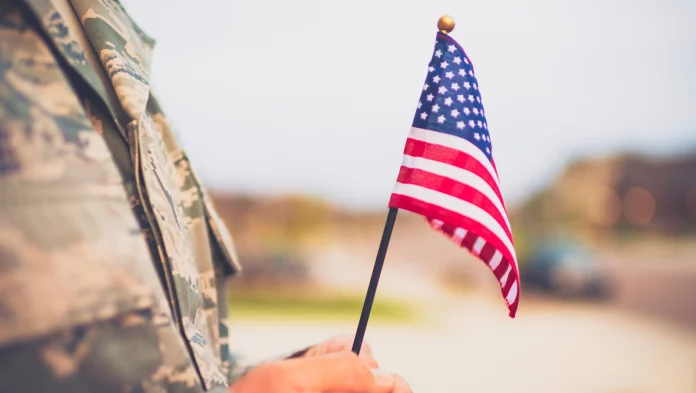From a Washington Press Release – Starting Jan. 17, Veterans in acute suicidal crisis will be able to go to any VA or non-VA healthcare facility for emergency health care at no cost, including inpatient or crisis residential care for up to 30 days, and outpatient care for up to 90 days. Veterans do not need to be enrolled in the VA system to use this benefit. This expansion of care will help prevent Veteran suicide by guaranteeing no-cost, world-class care to Veterans in times of crisis. It will also increase access to acute suicide care for up to 9 million Veterans who are not currently enrolled in VA. Preventing Veteran suicide is the VA’s top clinical priority and a top priority of the BidenHarris Administration. This effort is a key part of the VA’s 10-year National Strategy for Preventing Veteran Suicide and the Biden-Harris administration’s plan for Reducing Military and Veteran suicide.
In September, the VA released the 2022 National Veteran Suicide Prevention Annual Report which showed that Veteran suicides decreased in 2020 for the second year in a row, and that fewer Veterans died by suicide in 2020 than in any year since 2006. “Veterans in suicidal crisis can now receive the free, worldclass emergency health care they deserve – no matter where they need it, when they need it, or whether they’re enrolled in VA care,” said VA Secretary for Veterans Affairs Denis McDonough. “This expansion of care will save Veterans’ lives, and there’s nothing more important than that.” VA has submitted an interim final rule to the federal register to establish this authority under section 201 of the Veterans Comprehensive Prevention, Access to Care, and Treatment (COMPACT) Act of 2020. The final policy, which took effect on Jan. 17, will allow VA to:
- Provide, pay for, or reimburse for treatment of eligible individuals’ emergency suicide care, transportation costs, and follow-up care at a VA or non-VA facility for up to 30 days of inpatient care and 90 days of outpatient care.
- Make appropriate referrals for care following the period of emergency suicide care.
- Determine eligibility for other VA services and benefits.
- Refer eligible individuals for appropriate VA programs and benefits following the period of emergency suicide care.
Eligible individuals, regardless of VA enrollment status, are:
- Veterans who were discharged or released from active duty after more than 24 months of active service under conditions other than dishonorable.
- Former members of the armed forces, including reserve service members, who served more than 100 days under a combat exclusion or in support of a contingency operation either directly or by operating an unmanned aerial vehicle from another location who were discharged under conditions other than dishonorable.
- Former members of the armed forces who were the victim of a physical assault of a sexual nature, a battery of a sexual nature, or sexual harassment while serving in the armed forces.
Over the past year, VA has announced or continued several additional efforts to end Veteran suicide, including establishing 988 (then press 1) as a way for Veterans to quickly connect with caring, qualified crisis support 24/ 7; proposing a new rule that would reduce or eliminate copayments for Veterans at risk of suicide; conducting an ongoing public outreach effort on firearm suicide prevention and lethal means safety; and leveraging a national Veteran suicide prevention awareness campaign, “Don’t Wait. Reach Out.”
If you’re a Veteran in crisis or concerned about one, contact the Veterans Crisis Line to receive 24/7 confidential support. You don’t have to be enrolled in VA benefits or health care to connect. To reach responders, Dial: 988 then Press 1, chat online at VeteransCrisisLine.net/ Chat, or text 838255.
There are several signs a person can show that may be at risk of suicide. Warning signs could be talking about wanting to die, talking about feeling hopeless or having no purpose, talking about feeling trapped or in unbearable pain, talking about feeling like a burden to others, increasing their use of alcohol or drugs, acting anxious, agitated or reckless, sleeping too little or too much, withdrawing from friends and family, extreme mood swings or expressing wanting to seek revenge. If you suspect that someone you know may be struggling with their mental health and thoughts of suicide, let that person know they have your support and be present for them. Remove firearms, alcohol, drugs or objects that could be used in a suicide attempt, call the suicide and crisis lifeline at 988, or seek help from a medical or mental health professional.
If folks are nervous about making a phone call, there is also a crisis TEXT line. Text SAVE to 741741. This crisis text line is a texting service open to everyone (not just veterans) for all emotional crisis support. There are trained individuals available 24/7 to answer your text and is always FREE and confidential.
The North Shore Mental Health Group plans to discuss the potential of applying for a grant from the MN Dept. of Health to help support efforts to build both local resources and suicide prevention locally. The North Shore Mental Health Group welcomes new ideas and thoughts about how to address mental health and well-being in the Silver Bay, Finland, Isabella, and Beaver Bay areas. Please contact nsmentalhealth@gmail.com for more info about the meeting. The same email can be used to get a link to the next local, confidential peer support group meeting, which takes place on the 2nd and 4th Mondays of each month. For anyone needing immediate assistance, the National Mental Health Crisis line connects people to crisis counselors. It is available 24/ 7 at 988.




